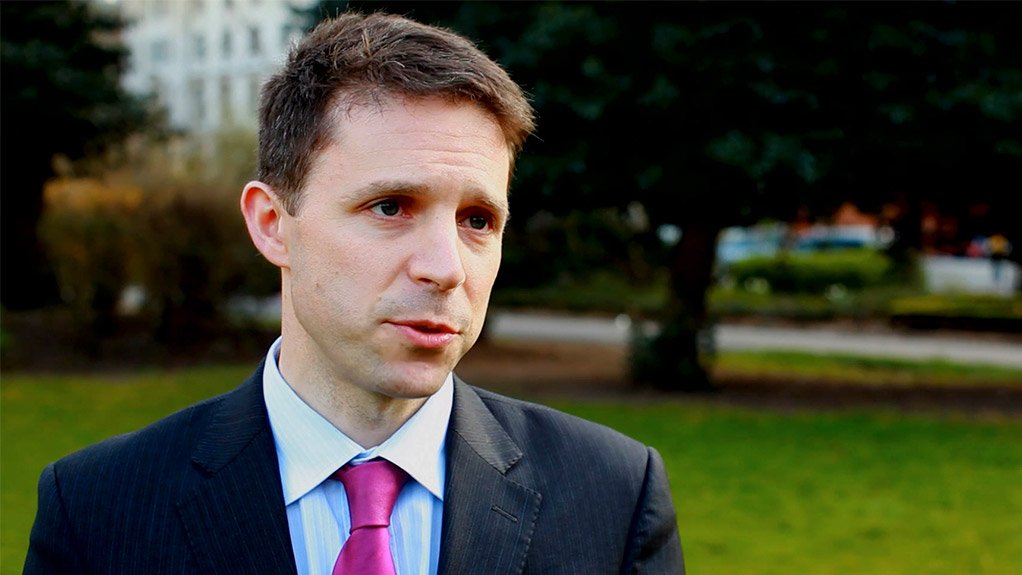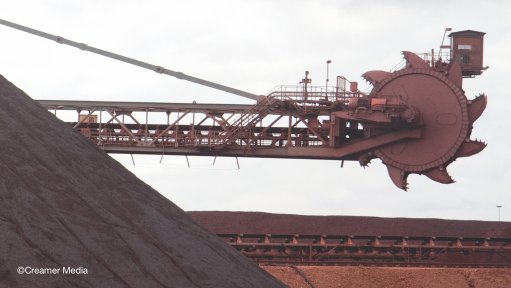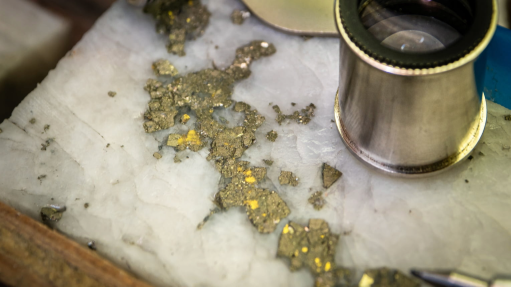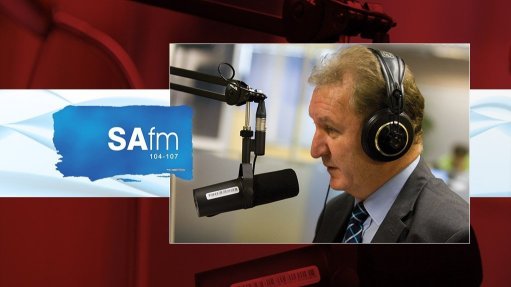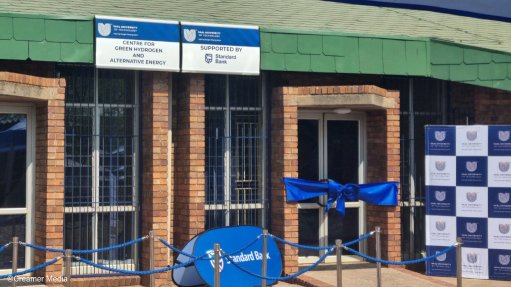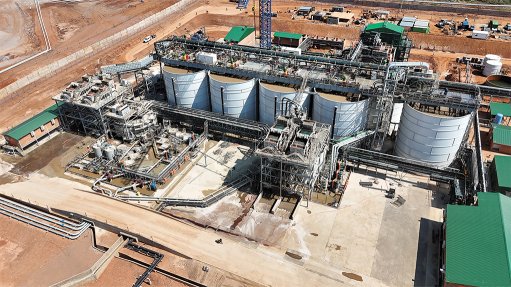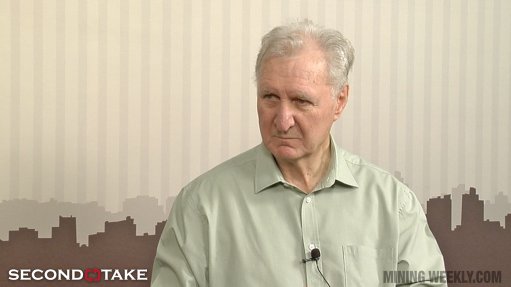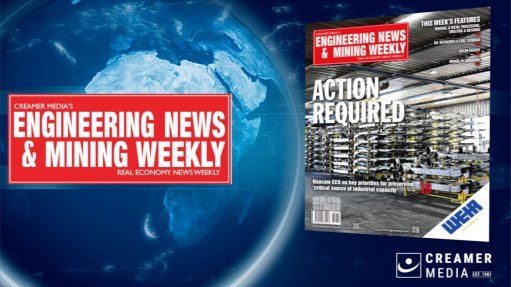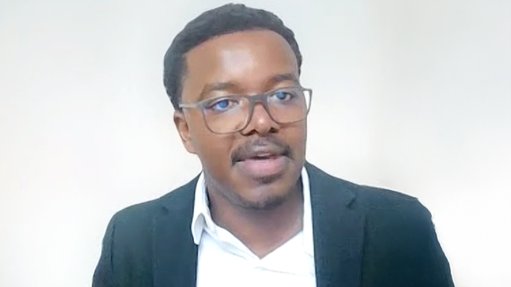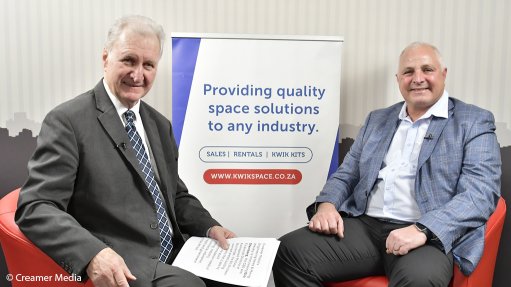Large-scale gold miners should help legitimate artisanal miners access formal markets
While a large proportion of artisanal or small-scale gold mining (ASGM) in Africa is illegitimate, companies operating in the large-scale gold mining (LSGM) sector in Africa should work to support responsible and legitimate ASGM operations wherever feasible and help them access the formal global gold market, market development organisation World Gold Council (WGC) CFO Terry Heymann told Mining Weekly on May 11.
Flows of illicit product are increased by the inability of some legitimate ASGM production to satisfy the due diligence requirements of mainstream gold markets.
However, he said, there was unfortunately a network of “shady characters” who traded in illegally mined product.
If responsible, legitimate ASGM miners were unable to access the formal parts of the gold market, they would be pushed into illegitimate gold trading networks to sell their gold.
Heymann said that combatting this required the mobilisation of public and private actors across all aspects of the supply chain and policy-making to support responsible mineral processing, as well as market access.
Such measures might include facilitating access to reputable processing entities or a willingness to consider the purchase of ore.
“In addressing some of the challenges around ASGM, you have to involve governments, local communities and civil society in general because ASGM really is a development issue, not a mining issue.
“This is because people are taking up what is often illegitimate artisanal mining owing to a lack of alternative livelihoods,” Heymann said.
He referred to a report published by the WGC in March on the interface between the ASGM and LSGM sectors throughout Africa, where the WGC found that it was critical for governments to play a leadership role in the legitimisation of the ASGM sector and the protection of the investments made by LSGM companies.
Moreover, the report found that the building of constructive relationships and trust between the ASGM and LSGM sectors was fundamental, despite significant cultural differences.
The report said LSGM miners needed to understand the context and the often highly complex socioeconomic and governance factors at work among local ASGMs, including red flags, such as possible taint by criminal groups or corruption.
The report noted that controlling in-migration and not rewarding confrontational or disruptive behaviour were fundamental to developing more constructive and stable arrangements between ASGMs and LSGMs.
It added that LSGM companies should consider moving their scope beyond risk management to judge whether cooperation with ASGMs might generate business opportunities.
However, Heymann commented that one of the largest hurdles to overcome was the formalisation of the ASGM sector to ensure a more peaceful coexistence between it and the LSGM sector.
Formalisation often depends on ASGM entities being able to adopt effective organisational structures, such as cooperatives, as well as help to improve gold recovery rates. By improving gold recovery rates, ASGMs can absorb additional costs associated with formalisation.
The formalisation process would mean that LSGM companies might need to remain engaged over the long term when promoting mercury-free technologies to partner ASGM entities, the report noted.
Heymann believed these factors were all manageable and that the set of challenges faced by the African gold mining sector, while unique, were no better or worse than in other locations around the globe – only different.
He believed WGC member companies were in a good position to play their part because member companies operating in Africa were already committed to being responsible and supportive wherever they operate under the WGCs stringent economic, social and governance standards.
“There is a commitment across all of our members to operate according to responsible business practices and specifically to responsible gold mining principles. It doesn't matter where you're operating. It is the same commitment,” Heymann said.
Heymann was in Cape Town this week attending the Investing in African Mining Indaba.
Comments
Press Office
Announcements
What's On
Subscribe to improve your user experience...
Option 1 (equivalent of R125 a month):
Receive a weekly copy of Creamer Media's Engineering News & Mining Weekly magazine
(print copy for those in South Africa and e-magazine for those outside of South Africa)
Receive daily email newsletters
Access to full search results
Access archive of magazine back copies
Access to Projects in Progress
Access to ONE Research Report of your choice in PDF format
Option 2 (equivalent of R375 a month):
All benefits from Option 1
PLUS
Access to Creamer Media's Research Channel Africa for ALL Research Reports, in PDF format, on various industrial and mining sectors
including Electricity; Water; Energy Transition; Hydrogen; Roads, Rail and Ports; Coal; Gold; Platinum; Battery Metals; etc.
Already a subscriber?
Forgotten your password?
Receive weekly copy of Creamer Media's Engineering News & Mining Weekly magazine (print copy for those in South Africa and e-magazine for those outside of South Africa)
➕
Recieve daily email newsletters
➕
Access to full search results
➕
Access archive of magazine back copies
➕
Access to Projects in Progress
➕
Access to ONE Research Report of your choice in PDF format
RESEARCH CHANNEL AFRICA
R4500 (equivalent of R375 a month)
SUBSCRIBEAll benefits from Option 1
➕
Access to Creamer Media's Research Channel Africa for ALL Research Reports on various industrial and mining sectors, in PDF format, including on:
Electricity
➕
Water
➕
Energy Transition
➕
Hydrogen
➕
Roads, Rail and Ports
➕
Coal
➕
Gold
➕
Platinum
➕
Battery Metals
➕
etc.
Receive all benefits from Option 1 or Option 2 delivered to numerous people at your company
➕
Multiple User names and Passwords for simultaneous log-ins
➕
Intranet integration access to all in your organisation



